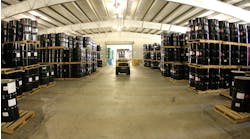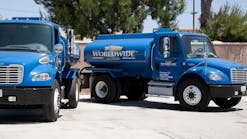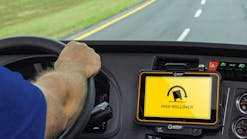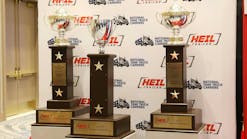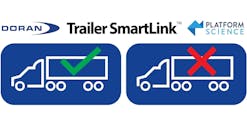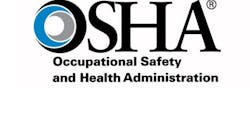The owner of an Idaho tank trailer testing and repair company recently was sentenced to a month in federal prison and a $15,000 fine for lying to the Occupational Safety and Health Administration (OSHA), and for making an illegal, uncertified repair to a cargo tank in violation of the Hazardous Materials Transportation Act.
According to the U.S. Attorney’s Office in Idaho, Loren Kim Jacobson’s conduct came to light through the investigation of a 2018 explosion that occurred during a tank repair at KCCS Inc. that severely injured him and another worker.
Jacobson, 65, pleaded guilty to both offenses May 20. He was sentenced Nov. 19.
“This tragic accident could have been prevented had the defendant adhered to OSHA workplace safety requirements,” said Rafael M. Gonzalez. Jr., acting U.S. Attorney for the District of Idaho. “It is vital that companies follow all health and safety guidelines and ensure a safe workplace for its employees. By callously focusing on financial gain, the defendant created the conditions that led to the explosion.”
Jacobson also was sentenced to five months’ home confinement and three years’ supervised release.
According to the plea agreement, the KCCS employee’s welder flame pierced the skin of the tanker, and ignited residual flammable material inside. After the explosion, an OSHA investigator interviewed Jacobson about the circumstances surrounding the accident, as part of an investigation into whether Jacobson had violated OSHA safety standards for cargo tanker repair work. Jacobson made a materially false statement to the OSHA investigator during that interview, namely that the welder was merely an “observer,” not an employee, and that KCCS did not have any employees, as OSHA requirements only apply to “employers.”
Jacobson lied about not having employees to try to evade legal repercussions and penalties for his violation of various Occupational Safety and Health Act safety standards during the repair that resulted in the explosion, prosecutors said. According to the sentencing memorandum, Jacobson also lied about several other points, including telling the OSHA inspector that he had used a lower explosive limit meter to test the tank for explosive fumes prior to welding. Using such a meter could have detected the fumes that resulted in the explosion.
“Loren Jacobson made material false statements to OSHA investigators regarding his failure to take safety precautions to protect his employees,” said Quentin Heiden, special agent in charge of the U.S. Department of Labor Office of Inspector General’s Los Angeles Region. “His actions put his employees at extreme risk and resulted in the explosion of a cargo tanker they were repairing. (This) sentencing affirms the U.S. Department of Labor Office of Inspector General’s commitment to bring to justice those who lie to OSHA officials.”
Jacobson also admitted in the plea agreement that he did not possess the necessary certification to conduct cargo tanker repairs, which he regularly conducted at KCCS.
Under the Hazardous Materials Transportation Act, all repairs to the skin of a cargo tanker require that the repairperson hold an “R‑stamp,” which can be obtained only after meeting extensive training requirements. The purpose of this requirement is to ensure that those conducting repairs on cargo tankers (which often haul flammable materials) have adequate training and expertise to do so safely.
Jacobson admitted that he had a regular practice of making repairs requiring an R-stamp despite knowing he did not have one, and that he would send employees into cargo tankers to weld patches from the inside so that the illegal repairs would not be visible from the outside. Jacobson did not follow OSHA safety standards for protecting employees from such dangerous “confined space entries.” According to the plea agreement, Jacobson directed his employee to conduct a hidden repair of this type on the tanker that subsequently exploded, in violation of both OSHA safety standards and the R-stamp requirement.
According to the government’s sentencing memorandum, Jacobson also had a routine practice of falsifying results for pressure testing that he conducted on behalf of cargo tank owners. Pressure testing is required under law and is intended to make sure that cargo tanks will automatically vent gases if pressure inside the tank gets too high, thereby preventing explosions. Instead of actually testing tank valves, Jacobson merely wrote plausible numbers on the test result forms. When confronted about this practice, Jacobson lied to a Department of Transportation inspector about it, attempting to hide the practice by producing fake test result forms with passing values. He later admitted his practice of falsifying pressure test results.
“Playing cat and mouse with inspectors, rather than complying with legal requirements that keep workplaces safe, is a dangerous game that can ruin lives,” said Assistant Attorney General Todd Kim of the Justice Department’s Environment and Natural Resources Division. “The Department of Justice will hold accountable those who mock the law this way.”

